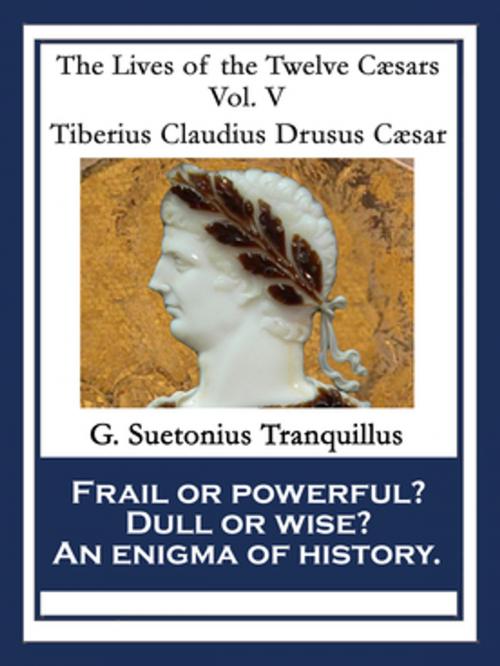Tiberius Claudius Drusus Caesar
The Lives of the Twelve Caesars Vol. V
Biography & Memoir, Political, Historical| Author: | Gaius Suetonius Tranquillus | ISBN: | 9781633849679 |
| Publisher: | Wilder Publications, Inc. | Publication: | May 29, 2015 |
| Imprint: | SMK Books | Language: | English |
| Author: | Gaius Suetonius Tranquillus |
| ISBN: | 9781633849679 |
| Publisher: | Wilder Publications, Inc. |
| Publication: | May 29, 2015 |
| Imprint: | SMK Books |
| Language: | English |
'The Twelve Caesars', is a set of twelve biographies of Julius Caesar and the first 11 emperors of the Roman Empire written by Gaius Suetonius Tranquillus. The work, written in AD 121 during the reign of the emperor Hadrian, was the most popular work of Suetonius, at that time Hadrian's personal secretary, and is the largest among his surviving writings. 'The Twelve Caesars' is considered very significant in antiquity and remains a primary source on Roman history. Claudius was the first Roman Emperor to be born outside Italy. Because he was afflicted with a limp and slight deafness due to sickness at a young age, his family ostracized him and excluded him from public office until his consulship, shared with his nephew Caligula. His infirmity probably saved him from the fate of many other nobles during the purges of Tiberius and Caligula's reigns; potential enemies did not see him as a serious threat. His survival led to his being declared Emperor by the Praetorian Guard after Caligula's assassination, at which point he was the last man of his family. He was seen as vulnerable throughout his reign, particularly by elements of the nobility.
'The Twelve Caesars', is a set of twelve biographies of Julius Caesar and the first 11 emperors of the Roman Empire written by Gaius Suetonius Tranquillus. The work, written in AD 121 during the reign of the emperor Hadrian, was the most popular work of Suetonius, at that time Hadrian's personal secretary, and is the largest among his surviving writings. 'The Twelve Caesars' is considered very significant in antiquity and remains a primary source on Roman history. Claudius was the first Roman Emperor to be born outside Italy. Because he was afflicted with a limp and slight deafness due to sickness at a young age, his family ostracized him and excluded him from public office until his consulship, shared with his nephew Caligula. His infirmity probably saved him from the fate of many other nobles during the purges of Tiberius and Caligula's reigns; potential enemies did not see him as a serious threat. His survival led to his being declared Emperor by the Praetorian Guard after Caligula's assassination, at which point he was the last man of his family. He was seen as vulnerable throughout his reign, particularly by elements of the nobility.















